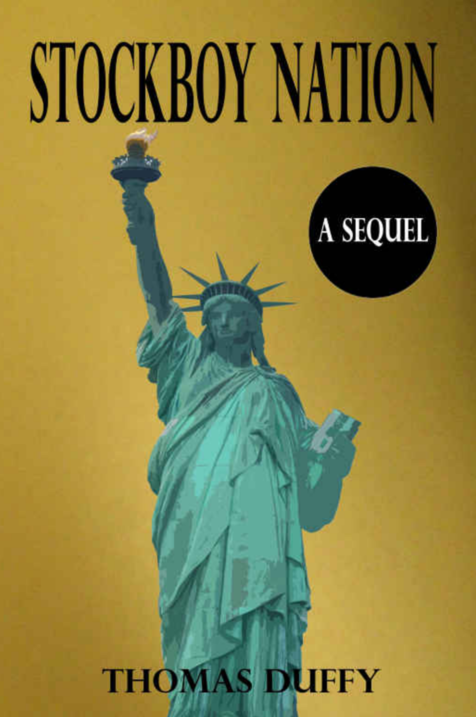
A long-awaited sequel from author Thomas Duffy, Stockboy Nation is a portrait that many readers will recognize with a shiver, set as it is in the early days of the pandemic. The struggles of a normal couple trying to hold it all together as their lives careen out of control is a story that echoes loudly these days, and Duffy’s stark, realistic writing brings present-day anxiety to the fore.
After the success of his first novel and the failure of his second, Philip Doherty is trying to keep his chin up as the world comes crashing down. Desperate to make ends meet and be the kind of man his fiancee wants to marry, he returns to a piece of his past, hoping that it will give some clarity to his future. As can be expected, small slivers of hilarity and a good bit of heartbreak ensue, leading him to take a hard look at his life and ask the questions he’s been desperately avoiding.
While this is essentially a novel about a struggling writer on his own journey towards happiness, which is far from a rare premise, there is something immediate and believable in this iteration. Philip is floundering, leaping from one possible source of salvation to another, even if it means jumping back and forth across an entire country; he is an everyman, but one with self-awareness and depth, along with a decent moral compass. It is easy to slip into this world as it is so recognizable – the repetitive cycle of capitalistic demands and bills and romantic complications and the chronic stress of just scraping by. The timeliness and universality of this story cannot be overstated.
The overall quality of the writing could be improved, however, particularly the declarative and informative narrative voice. There is often little room for readers to breathe before the tangential prose drops in a major plot development, or shifts awkwardly into a new subject. The introduction of new characters, or the shifts between scenes, can feel jarring and rushed, with little description to pad the movement of the story. The pacing could generally be slowed down overall, allowing for more reflection or development of tension.
On the technical side, there are also a significant amount of grammatical mistakes, from missed commas that confuse meaning to repetitive sentences and flat or idiomatic word choices. A solid editing pass could make some of this prose shine, particularly in the more procedural moments.
That being said, the matter-of-fact tone does create a sense of authenticity, as the occasionally flat tone of the narrator and the tangible depression of the protagonist are recognizable now more than ever. While working through some of the curveballs the plot throws at him, Philip has some genuine moments of revelation and self-reflection, which keeps the novel deeply relatable, as everyone is suffering through some upended form of life during the present pandemic.
On this point, Thomas Duffy excels; writing such a relevant novel during such a troubled time is a service in itself, and this sharp, fast-moving story is a good reminder that we’re not alone, even when it feels that way.
Book Links
STAR RATING
Design
Content
Editing
Get an Editorial Review | Get Amazon Sales & Reviews | Get Edited | Get Beta Readers | Enter the SPR Book Awards | Other Marketing Services























Leave A Comment